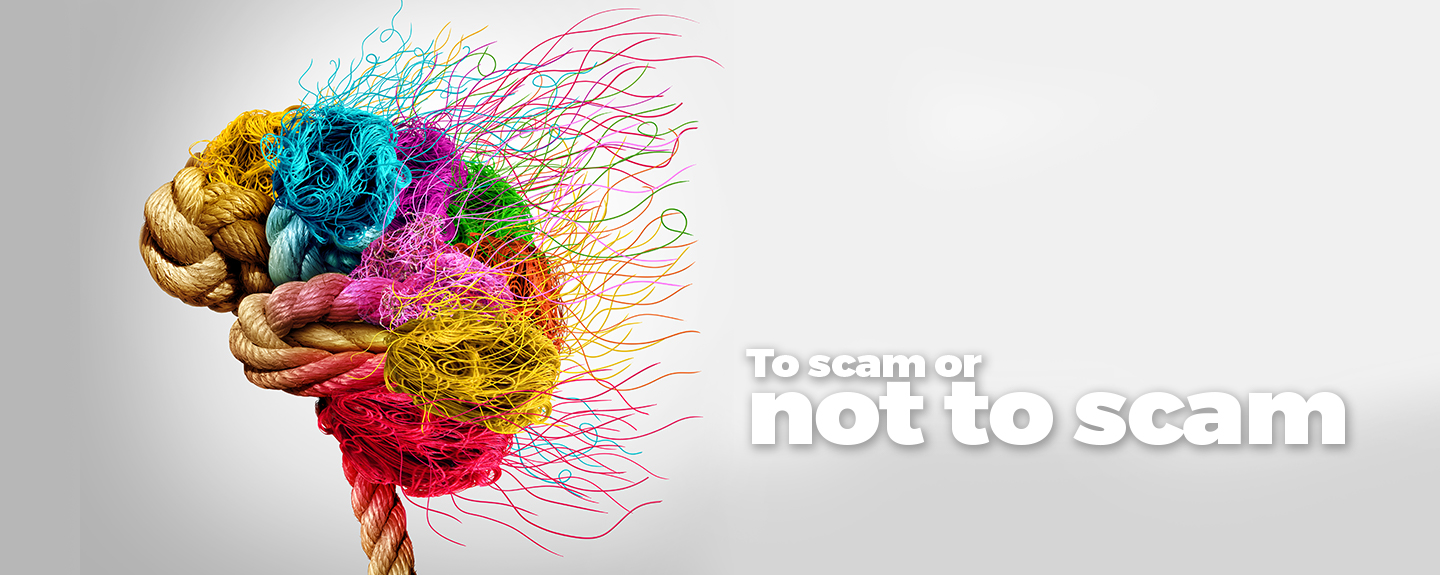At a few advertising festivals, they introduced a separate category for unreleased work. Considering the award festivals are all about scam ads, they should have made a special category called ‘Work That Actually Ran’.
Because just about every ad that wins at award shows is a scam ad. Earlier this used to be limited to countries like Singapore, India and Brazil, but scam has now gone global. Of course, some of the ads that are entered meet the legal requirement that says ‘it ran’ though in principle they are still scam.
See the chart above. Almost all Scam Ads fall in the bottom left quadrant. They are not in the right space, and no client in her senses will ever run them.
Why then do agencies scam? For one, it wins them glory. Winning big at Cannes, D&AD or One Show, gives them tremendous PR mileage. Often clients feel good too when their name gets featured in the awards list, even when it’s for scam. (Though quite a few clients are sensible enough to be indifferent to awards.)
For another, it attracts good talent to the agency. Most creative people would give an arm and a leg for an award, and flock to agencies that would let them do scam work. Senior creative honchos also encourage scam as it affects their future employ ability too.
1. Does scam really help the industry? let us examine the pros and cons.
Practitioners of scam have defended what they do by comparing award-winning work to haute couture and the regular work as the pret range. Haute Couture is not exactly street wear, and mostly meant only for fashion shows. However it does have an influence on what fashion labels stock; likewise award-winning ads, despite being scam, push the envelope on creative excellence. An ideal scam ad is one that makes one say, “So what if it’s scam? It’s bloody brilliant!”
Defenders of scam also say, with some justification, that those who protest the most about scam ads people who do boring ads and who wouldn’t win even if they are allowed to scam.
2. Now, let’s look at the negative effects of scam.
Today, in most agencies, the sole focus of junior creative talent is awards. Sadly, in the process, regular work has taken a backseat. The reason you don’t find too many good ads, particularly print ads, is this.
Paraphrasing the adage ‘It’s not creative unless it sells’ one could say ‘It is not an ad if it hasn’t run’. One of the challenges of executing a great ad is selling it to the client. Take that out of the equation, and is it advertising anymore?
Further,released work, which will never be as edgy as scam, goes uncelebrated. A released ad, however brilliant, has little chance of winning against scam.
Agencies spend huge amounts of money to create scam ads and enter them for awards. Wouldn’t this money be better spent on, say, training or even remunerating people better?
So on balance, what should the industry’s stand on scam ads? Maybe it’s time for agencies to introspect, and take a stand. While scam ads are here to stay – it’d be extremely difficult to enforce a ban on them – it’s worth our while to reflect whether we should take advertising awards all that seriously.
5. Trust your intuition
A long-term relationship is built on mutual respect, trust and understanding. Is the team passionate? Inspiring? Are they collaborative and proactive? Are they willing to listen?
While there’s no way one can measure all this with 100% certainty in a few meetings, you will pick up signs during close interactions. Visit their office and you will get an idea of their work culture. Chat with the employees, and get a feel of their work culture. Does the workplace radiate cheerfulness and energy, or does it feel like a dead place? Do you share a comfort level with them?
You don’t need a checklist for all this; you would instinctively know. Now a few points on how to get the best from your agency once you appoint them.
Decide and let the agency know who would be the approving authority. Don’t let a committee take decisions, particularly when it comes to creative calls. As somebody once said, a camel is a horse designed by a committee. Most of the iconic advertisement campaigns have one thing in common: they were approved by a single person, not a group of people. So keep the chain of command short. And let the agency know when their work has brought you good results. Be transparent and honest when you deal with them. Also, don’t try to do their job yourself. Remember that they are specialists who know their job better than you. As David Ogilvy once said, “Don’t hire a dog, then bark yourself.”
Make them your partner, and the relationship will reward you in spades.







